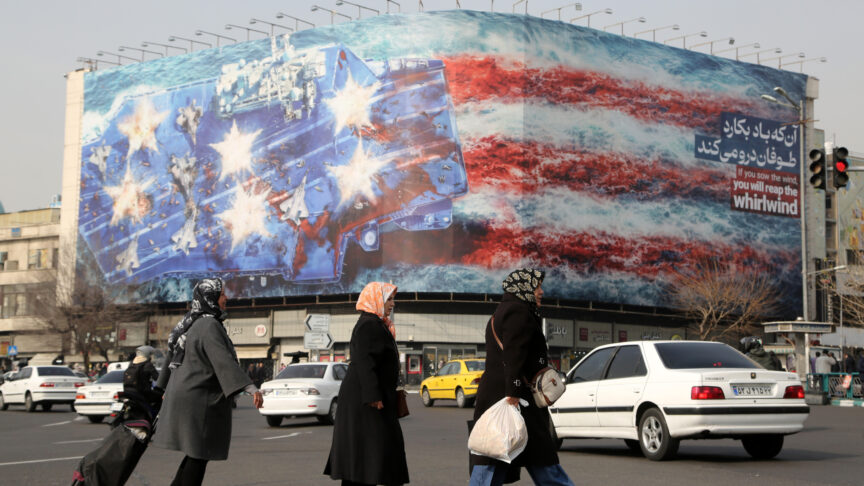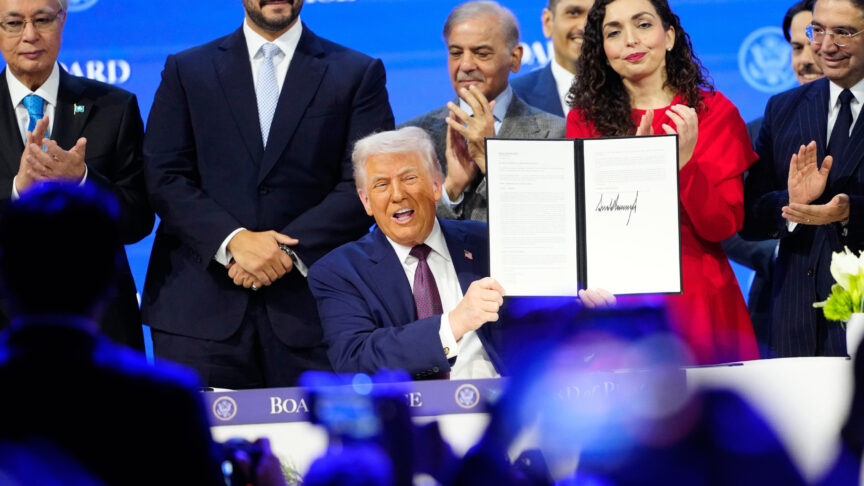How Italy was marginalised in Libya
Italy has achieved little through independent diplomacy in Libya. It may have more success by acting within a European framework.
On 7 January, Italian Prime Minister Giuseppe Conte attempted to push for a ceasefire in Libya’s conflict by organising a surprise meeting in Rome between Field Marshal Khalifa Haftar, leader of the Libyan National Army, and President Fayez al-Sarraj, head of the UN-backed Government of National Accord (GNA). It was a brave gambit designed to exploit Haftar’s visit to Italy to meet with a US delegation and Sarraj’s trip to Brussels to meet with Josep Borrell, the European Union’s new high representative for foreign affairs and security policy. But the effort ended in embarrassment for the Italian government when, according to official claims, Sarraj cancelled his trip because he was insulted by Conte’s decision to receive the field marshal first.
With a major conference between the parties to the conflict scheduled to take place in Berlin on 19 January, this resurgence in Italy’s diplomatic activism formed part of a desperate attempt to reclaim some prominence in Libyan diplomacy – and thereby protect Italian security, economic, and energy interests in Libya. Despite its long-standing position of influence in its former colony, Italy now faces the prospect of permanent marginalisation in Libya, largely due to its diplomatic missteps in the last few years. The Italian government officially backs the UN process that seeks to repair political ties between the GNA and political entities around Haftar, stabilise Libya, and rebuild the country’s institutions. However, the weakness of successive governments in Rome and the distortive effect of the migration crisis on Italian policymaking limited Italy’s ability to provide substantive support to the United Nations. Conte’s gaffe on 7 January pays testament to Italy’s diminished status. Italy’s continued attempts to unilaterally lead on the conflict may compromise not only its future role in Libya but also Europe’s capacity to engage in crisis resolution.
The Palermo conference on 12 November 2018 was supposed to return Italy to the core of the peace process. During a visit to Washington three months earlier, Conte obtained President Donald Trump’s endorsement to establish an Italian “control room”, as the Italian leader defined it, that would make Italy the United States’ primary interlocutor in Europe for “Mediterranean challenges” such as terrorism and, particularly, the Libyan crisis.
However, since that visit, Italy has been unable to implement a coherent political strategy in Libya, and has become disconnected from recent developments there. These factors, combined with growing interference in Libya by Middle Eastern countries and Russia, have pushed Italy to the diplomatic sidelines. It is a dynamic that began with Italian rhetoric and policy on the Palermo conference, which was designed to court Haftar but only succeeded in alienating Italy’s allies in Tripoli. This reality became clear on 4 April 2019, when Haftar surprised the Italian government by launching an attack on Tripoli, dealing a final blow to the control room initiative. As the war continued, Italy’s inability to support its western Libyan allies in international forums transformed it from an aspiring mediator into a concerned bystander – a bystander that would seemingly hedge its bets until it knew which side would prevail in the conflict.
While France continued to provide material and diplomatic support to Haftar, Italy joined other Europeans in calling for dialogue and a ceasefire without preconditions. Italy’s unwillingness to become more involved was reflected in its muted reaction to Haftar’s bombing of Misrata in July 2019 – where Italy maintains a military hospital – and in Conte’s ambiguous statement on the assault two weeks later, in which he affirmed that Italy sided with neither Haftar nor Sarraj but the Libyan people. Italy’s subsequent loss of credibility in Libya could be seen when, for instance, Sarraj strengthened the GNA’s relationship with Turkey – as formalised in the Memorandum of Understanding they signed in November. He did so after making a series of requests for greater support from Italy, to no avail. Meanwhile, Haftar, who has never needed Italian support, remains strongly critical of the Italian presence on the ground.
When Russian mercenaries fighting in support of Haftar downed Italian and American drones on the outskirts of Tripoli in November, this only highlighted how far Italy’s stock in Libya had fallen. In an official statement, Haftar apologised to the US but accused Italy of violating Libyan sovereignty. Thus, by ignoring Sarraj’s repeated requests for firmer support, Italy appears to have both lost an ally and failed to secure a new one.
Italy has been unable to implement a coherent political strategy in Libya.
Indeed the GNA’s turn towards Turkey has pushed Italy and Europe into a corner. Since then, the rapid development of interactions between Turkey and Russia on the conflict shows just how effective two politically decisive actors can be.
All in all, Italy has nothing to show for its bout of diplomatic activism. The lesson it should take from this is that what it fails to accomplish unilaterally, it may achieve within a European framework. Given its geostrategic position, Italy cannot afford to be marginalised in the Libyan conflict. However, due to its missteps – as well as other foreign powers’ intervention in the war and the stark polarisation of Haftar on one side of the conflict and Sarraj on the other – Italy has achieved just that.
The Berlin conference provides the Italian government with a good opportunity to change its fortunes by forging a pan-European position on the conflict. This would allow Italy to leverage its historical relationship with Libya and its status as the sole European state with a permanent official presence on the ground. The initiatives that come out of the conference will be crucial to Europe’s ability to retain influence in Libya. However, France’s activism on the ground in support of Haftar might jeopardise such mediation, which would allow Europe and Italy to regain their role in the peace process.
Foreign powers’ growing role in Libya demands a greater common response from Europe. In this context, Italy would only further damage European interests in Libya if it acted unilaterally once again.
The European Council on Foreign Relations does not take collective positions. ECFR publications only represent the views of their individual authors.


